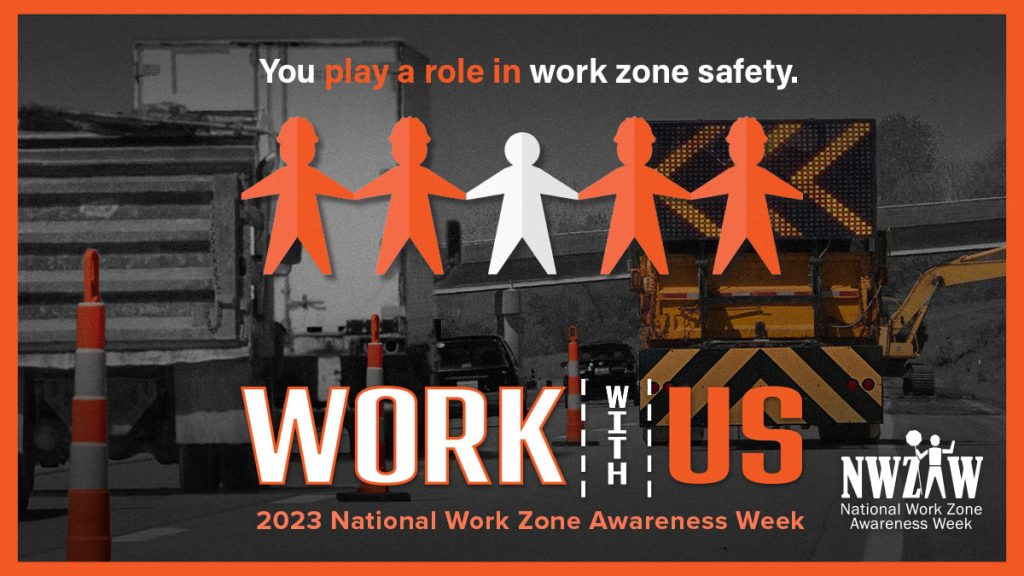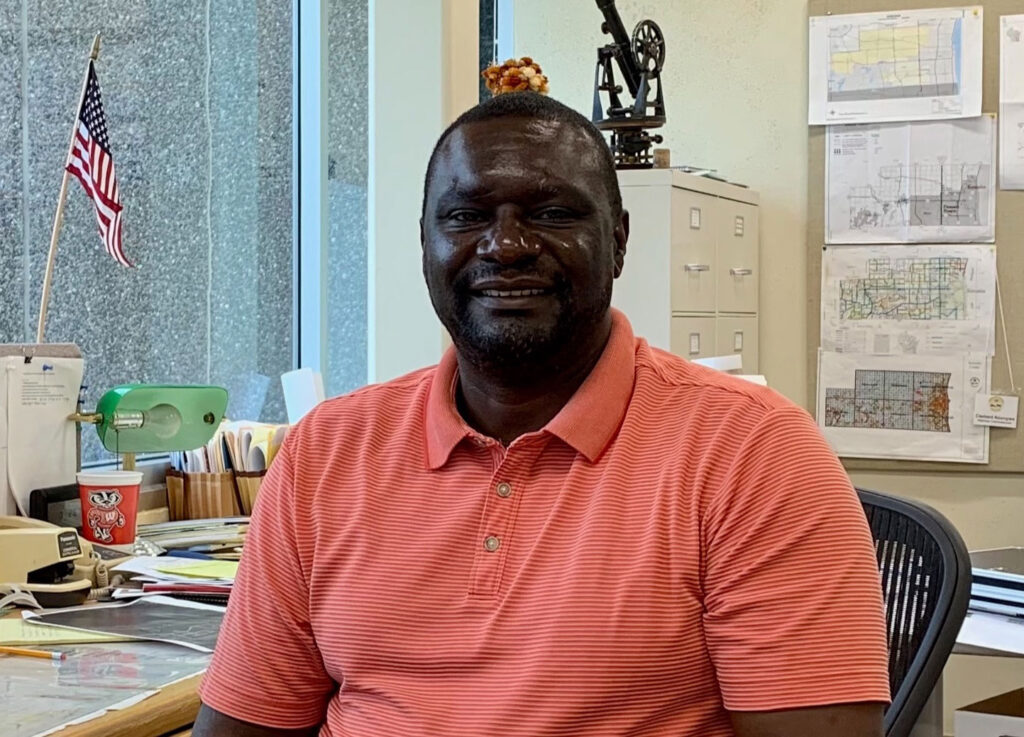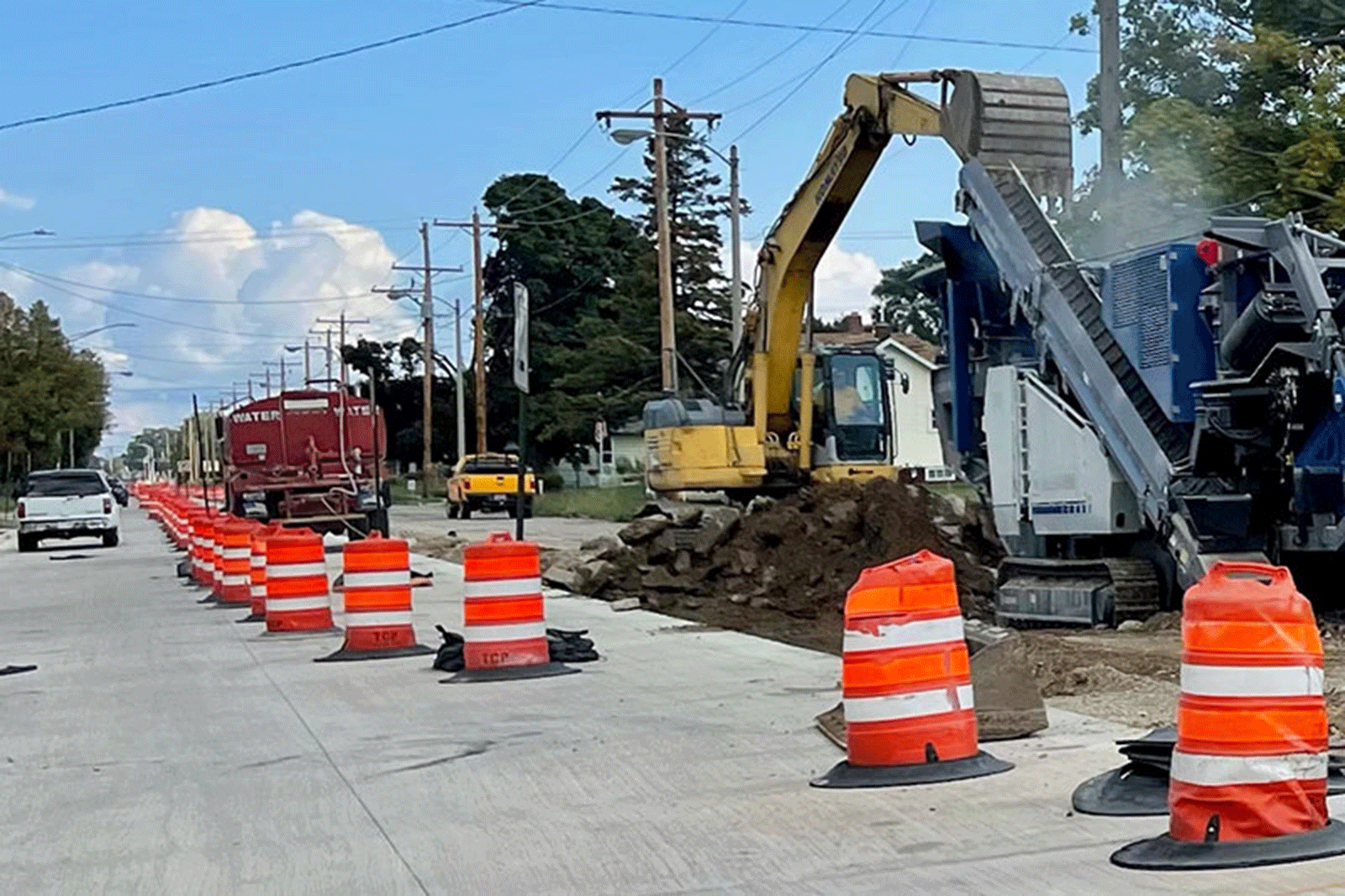With a new road construction season underway, Kenosha County officials are reminding drivers to slow down and pay attention in work zones.
The week of April 17-21 is National Work Zone Awareness Week, a call to action for drivers to keep safety at the top of their minds while driving in construction areas.

“You play a role in work zone safety — work with us,” said Kenosha County Executive Samantha Kerkman. “That is the theme of this year’s National Work Zone Awareness Week campaign, and it really is true. By paying extra attention in work zones, slowing down and following speed limits, you can play a vital role in keeping our road workers safe and
preventing accidents.”
Kenosha County Highway Director Clement Abongwa’s advice: “Think when you drive, and drive safely.”
“A car traveling 60 mph travels 88 feet per second,” Abongwa said. “That means that a lot can happen during that brief moment that you might take your eyes off the road.”
In Wisconsin, work zones include major highway construction and rehabilitation, maintenance, emergency response, utility work, municipal projects, and more — any time there are flashing lights, signs, barrels, or workers on the road.
Emergency and work zones are protected by Wisconsin laws that aim to keep workers safe. Fines double in construction zones, and handheld cellphone use is banned. Additionally, a state law that took effect in December 2021 extends these protections to areas surrounding emergency response vehicles with flashing lights.

Abongwa also reminds drivers of the state’s Move Over Law, which requires drivers to shift lanes or slow down to provide a safety buffer for a law enforcement squad, ambulance, firetruck, tow truck, utility vehicle, or highway maintenance vehicle that is stopped on the side of the road with its warning lights flashing.
“You can make a difference, when it comes to keeping highway workers and first responders safe,” Abongwa said.
Some more safety tips from the Wisconsin Department of Transportation:
- Eliminate distractions like eating, drinking, talking on the phone or fiddling with electronic devices.
- Expect the unexpected in work zones. Speed limits may be reduced, traffic lanes may be changed, and people and vehicles may be working near the road.
- Give yourself room. Rear-end collisions are the most common work zone crashes, so do not tailgate.
- Look for signs. Orange, diamond-shaped signs usually give ample warning of lane closures, construction areas, and flaggers and other workers ahead.
- Be patient. If you don’t see workers, that doesn’t mean they’re not there. Observe the signs until you see one that says you’ve left the work zone.
- Plan ahead. Leave early or map out an alternative route. Find the latest road conditions and work zone news at https://511wi.gov.
- Follow the law — slow down and move over, if possible, when you see flashing lights.
- Consider turning off your phone until you reach your destination.
- If you must make a call, find a safe place to pull over and stop, such as a wayside or gas station.
Learn more at http://wisconsindot.gov/Pages/safety/education/workzone/default.aspx.
Show your support for work zone safety:
Wednesday (April 19) is “Go Orange Day,” during which people are encouraged to wear something orange in support of highway safety. Social media pictures and posts using the #OrangeForSafety hashtag are welcome, but please always refrain from using electronics while driving.












